#renault history
Text
All tragedies deal with fated meetings; how else could there be a play? Fate deals its stroke; sorrow is purged, or turned to rejoicing; there is death, or triumph; there has been a meeting, and a change. No one will ever make a tragedy—and that is as well, for one could not bear it—whose grief is that the principals never met.
Mary Renault, The Mask of Apollo
#book quotes#mary renault#mask of Apollo#literature#books and libraries#greek tragedy#greek history#greek myths#ancient greece
162 notes
·
View notes
Text

2025 couldn't come sooner 🥹
#i love the beautiful history these two have and I AM SURE AS HELL that these two are gonna create history together#8th (9th) wdc incoming for SIR LEWIS HAMILTON#f1#formula 1#lewis hamilton#formula one#lewis#lh44#f1blr#team lh44#renault f1#art#karting#f1 2025#lewis to ferrari#Fred#fred vasseur#from the archives#f1 archive#ferrari f1
84 notes
·
View notes
Text
People planning to stab Robespierre compilation
What was your plan in going to Robespierre’s house.
To talk to him in person.
What did you want to talk to Robespierre about?
I don’t want to give any response or explanation regarding this question.
Do you realize that your answers lead one to believe you had the intention of committing a crime, and that you must explain your intentions?
She does not want to explain further, and adds that she intended to ask him for instructions on the situation and the strengthening of the Republic.
Do you realize that your declarations and obstinacy to not want to explain yourself cannot be reconciled with such a plan, which is why I’m again asking you to explain yourself?
She persists in not wanting to answer.
Did anyone propose to you the plan of going home to Robespierre and did you tell anyone about it?
No.
Did you go to Robespierre’s house several times during the day?
No.
When you went to Robespierre, did you bring with you knives, and if yes, of which sort?
I had in my pocket two folding knives, one in tortoiseshell and the other in ivory, both trimmed in silver: the one made of ivory was given to me by my brother in 89, having found it at Prés-Saint-Gervais. The other was given to me by my grandmother three or four years ago. It was loaded with rust; I cleaned it and tried to remove the rust by scraping the blade with another knife, eight or nine days ago. I rarely use it.
Do you regularly carry two knives?
I carry the tortoiseshell one regularly, the ivory one showed up in my pocket, I didn’t know it was there.
When you went home to Robespierre, did you have the intention of using these knives to kill him?
No, moreover, we can judge as we please.
Interrogation of Cécile Renault, held on May 24 1794
At that time, the indictment that I (Lecointre) was preparing against the traitor (Robespierre) and his accomplices was completed; Fréron who helped me with his insights, Barras, Rovère, Thirion, Courtois, Garnier de l'Aube, Guffroy and Tallien etc advised me to attack him in person, so that success would be more certain. The roles were divided to support my opinion, and to combat with force the sophisms of Robespierre, but they were of the opinion that the memoir should be printed and distributed an hour before being read at the National Convention: Guffroy was in charge and had promised, from the 6th, to have it printed; and it was solemnly sworn by us that if the truth succumbed, we would immolate the tyrant in the middle of the Convention.
Conjuration formée dès le 5 préréal [sic] par neuf représentans du peuple contre Maximilien Robespierre, pour le poignarder en plein sénat: rapport et acte d’accusation dont la lecture devoit précéder dans la Convention cet acte de dévouement (1794), page 4
Bourdon de l'Oise, rightly frightened by the ease with which, until then, several batches of his colleagues had been delivered to the proscriptions of this tribunal, had wanted to exclude from the number of defendants, whom the two committees alone could bring there, any representative of the people: he had insisted that the decision could only emanate from the Convention itself, and by a special decree. On this subject, a great rumor arose within the assembly: the members of the two committees, whom Bourdon's motion implicitly accused of wanting to get hold of their antagonists, with Couthon and Robespierre at the forefront, had strongly qualified him as a caluminator. Robespierre, in his fury at being thus unveiled, had forgotten himself to the point of throwing the epithet of ”scoundrel” against Bourdon; and, far from retracting Bourdon's claim, he had insinuated that the latter was on his way to get arrested; that the committees could provoke it.
Bourdon, after this stormy session, had felt only too well that it was a fight to the death which had just begun between him and Robespierre: he had resolved to guarantee his own head, by the precipitous fall of that of Robespierre. It was with his own hand that he wanted to destroy this tyrant of the fatherland, this proud usurper who did not hesitate to degrade the national representation, in order to sacrifice it in detail to his disproportionate ambition. Once this decision to get rid of Robespierre by the dagger had settled in his head, Bourdon thought of taking, before the assassination attempt, some measures relative to his fortune. He took the keenest interest in a woman and several young children whose fate was linked to his own, and had made arrangements in their favor.
Now, it was me that Bourdon had chosen, to be both the preserver of his final wishes and the protector, after him, of these beings he loved. The day after 23 Prairial, Bourdon brought me to his house, making me believe that it was just a simple dinner. He then occupied a small bachelor's accommodation on rue des Saints-Pères in a house on the left, which only had a narrow door, without a doorman. His apartment was pointed out to me by a woman who was coming out, in despair at not having been able to get him to intercede for her husband. I had barely entered when Bourdon, without further circumlocution, said to me: “Listen, we’ve known each other for a long time; I know that you are a moderate patriot, that you are not very passionate about the republic; but you are an honest man, a good friend; and it is for these two reasons that I was able to open up to you about my projects and the measures they involve. Robespierre is my personal enemy; he attacked and threatened me in the middle of the Convention: he wants to kill me, in order to be able to more easily dominate the Convention and seize absolute power. I want to thwart his ambitious designs by immolating him with my own hand.”
At the same time, and as if he felt the need to convince me even more of the strength of his mind, he took out from under his bed an oblong casket, in which was tucked the coat he had worn on the day of the storming of the Bastille, the hat which, in the Vendée, had adorned his forehead as a representative of the people, and a large cutlass with which he was always armed on his expeditions. He took great care to point out to me that his coat was still covered with stains from the blood he had spilled at the Bastille, that his hat was riddled with the bullets of the Vendéens. As for the cutlass, he had more than once plunged it into the hearts of his enemies; it was the weapon with which he intended, at the first opportunity which presented itself, to strike Robespierre. I trembled lest the wall, which received these terrible confidences together with me, should share a syllable with anyone. Bourdon, to reassure me, said that for the development of his plan, he needed someone discreet enough to remain silent before and after the action; faithful enough to keep his will; zealous enough and enlightened enough to have it executed in due time. “It is you,” he said to me, “who will be my devoted confidant, I count on it and no longer worry about anything.” He immediately gave me his will with his instructions and some important titles.
God knows with what agitations this gift filled my soul, what bad nights I passed with the possession of this perilous deposit! At the slightest suspicion, at the slightest word of revelation, I would have been a dead man. What would happen if Bourdon had gotten arrested before or after the consummation of his revenge and the slightest indication of correspondence with him was administered against me? The sixteen days I spent in this state of uncertainty felt like centuries. Finally arrived, against all foresight, and without the isolated provocation on the part of Bourdon de l'Oise, this day, forever precious for humanity, of the 9th of Thermidor.
Souvenirs de M. Berryer, doyen des avocats de Paris (1839)
Tallien: I demanded earlier that one tears apart the veil. With pleasure, I just saw that it is torn apart entirely, that the conspirators have been unmasked, that they will soon be annihilated, and that liberty will triumph. (Loud applause.) Everything announces that the enemy of the national representation will fall under its blows. We give a proof of our republican loyalty to our nascent republic. I forced myself to remain silent until now, because I knew of a man who approached the tyrant of France, that he had formed a proscription list. I did not want to remonstrate, but I have seen the session of the Jacobins yesterday: I have trembled for the patrie ; I have seen the army of a new Cromwell forming itself, and I am armed with a dagger in order to pierce its breast, if the National Convention did not have the courage to issue a décret d'accusation against him. (Loud applause.)
Tallien at the Convention, July 27 1794
#robespierre#maximilien robespierre#frev#frev compilation#cécile renault#tallien#bourdon d’oise#how can people think history is uninteresting when ”plan formed on 5 prairial to stab robespierre to death in broad daylight”#is a legit title of a pampleth???
79 notes
·
View notes
Text

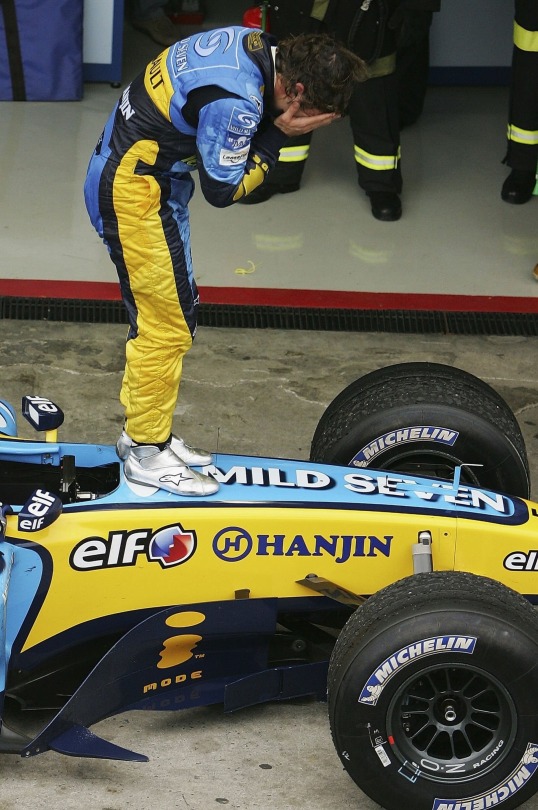
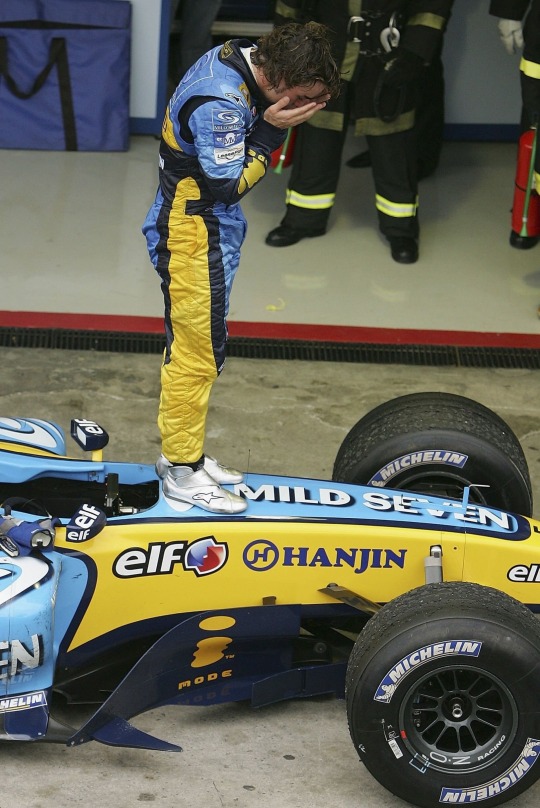

Fernando Alonso celebrates winning the World Championship
September 25, 2005 - Sao Paulo, Brazil
Source: Vladimir Rys/Bongarts/Getty Images
85 notes
·
View notes
Note
I see you talk a lot about historiography! What would you consider the most important development of Alexander’s historiography?
What the Hell is Historiography? (And why you should care)
This question and the next one in the queue are both going to be fun for me. 😊
First, some quick definitions for those who are new to me and/or new to reading history:
Historiography = “the history of the histories” (E.g., examination of the sources themselves rather than the subject of them…a topic that typically incites yawns among undergrads but really fires up the rest of us, ha.)
primary sources = the evidence itself—can be texts, art, records, or material evidence. For ancient history, this specifically means the evidence from the time being studied.
secondary sources = writings by historians using the primary evidence, whether meant for a “regular” audience (non-specialists) or academic discussions with citations, footnotes, and bibliography (sometimes referred to as “full scholarly apparatus”).
For ancient history, we also sometimes get a weird middle category…they’re not modern sources but also not from the time under discussion, might even be from centuries after the fact. Consider the medieval Byzantine “encyclopedia” called the Suda (sometimes Suidas), which contains information from now lost ancient sources, finalized c. 900s CE. To give a comparison, imagine some historian a thousand years from now studying Geoffry Chaucer from the 1300s, using an entry about him in some kid’s 1975 World Book Encyclopedia that contains information that had been lost by his day.
This middle category is especially important for Alexander, since even our primary sources all date hundreds of years after his death. Yes, those writers had access to contemporary accounts, but they didn’t just “cut-and-paste.” They editorialized and selected from an array of accounts. Worse, they rarely tell us who they used. FIVE surviving primary Alexander histories remain, but he’s mentioned in a wide (and I do mean wide) array of other surviving texts. Alas this represents maybe a quarter of what was actually written about him in antiquity.
OKAY, so …
The most important historiographic changes in Alexander studies!
I’m going to pick three, or really two-and-a-half, as the last is an extension of the second.
FIRST …decentering Arrian as the “good” source as opposed to the so-called “vulgate” of Diodoros-Curtius-Justin as “bad” sources.
Many earlier Alexander historians (with a few important exceptions [Fritz Schachermeyr]) considered Arrian to be trustworthy, Plutarch moderately trustworthy if short, and the rest varying degrees of junk. W. W. Tarn was especially guilty of this. The prevalence of his view over Schachermeyr’s more negative one owed to his popularity/ease of reading, and the fact he wrote on Alexander for volume 6 of the first edition (1927) of the Cambridge Ancient History, later republished in two volumes with additions (largely in vol. 2) in 1948 and 1956. Thus, and despite being a lawyer (barrister) not a professional historian, his view dominated Alexander studies in the first half of the 20th century (Burn, Rose, etc.)…and even after. Both Mary Renault and Robin Lane Fox (neither of whom were/are professional historians either), as well as N. G. L. Hammond (with qualifications), show Tarn’s more romantic impact well into the middle of the second half of the 20th century. But you could find it in high school and college textbooks into the 1980s.
The first really big shift (especially in English) came with a pair of articles in 1958 by Ernst Badian: “The Eunuch Bagoas,” Classical Quarterly 8, and “Alexander the Great and the Unity of Mankind,” Historia 7. Both demolished Tarn’s historiography. I’ve talked about especially the first before, but it really WAS that monumental, and ushered in a more source-critical approach to Alexander studies. This also happened to coincide with a shift to a more negative portrait of the conqueror in work from the aforementioned Schachermeyr (reissuing his earlier biography in 1973 as Alexander der Grosse: Das Problem seiner Persönlichtenkeit und seines Wirkens) to Peter Green’s original Alexander of Macedon from Thames and Hudson in 1974, reissued in 1991 from Univ. of California-Berkeley. J. R. Hamilton’s 1973 Alexander the Great wasn’t as hostile, but A. B. Bosworth’s 1988 Conquest and Empire: The Reign of Alexander the Great turned back towards a more negative, or at least ambivalent portrait, and his Alexander in the East: The Tragedy of Triumph (1996) was highly critical. I note the latter two as Bosworth wrote the section on Alexander for the much-revised Cambridge Ancient History vol. 6, 1994, which really demonstrates how the narrative on Alexander had changed.
All this led to an unfortunate kick-back among Alexander fans who wanted their hero Alexander. They clung/still cling to Arrian (and Plutarch) as “good,” and the rest as varying degrees of bad. Some prefer Tarn’s view of the mighty conqueror/World unifier/Brotherhood-of-Mankind proponent, including that He Absolutely Could Not Have Been Queer. Conversely, others are all over the romance of him and Hephaistion, or Bagoas (often owing to Renault or Renault-via-Oliver Stone), but still like the squeaky-nice-chivalrous Alexander of Plutarch and Arrian.
They are very much still around. Quite a few of the former group freaked out over the recent Netflix thing, trotting out Plutarch (and Arrian) to Prove He Wasn’t Queer, and dismissing anything in, say, Curtius or Diodoros as “junk” history. But I also run into it on the other side, with those who get really caught up in all the romance and can’t stand the idea of a vicious Alexander.
It's not necessary to agree with Badian’s (or Green’s or Schachermeyr’s) highly negative Alexander to recognize the importance of looking at all the sources more carefully. Justin is unusually problematic, but each of the other four had a method, and a rationale. And weaknesses. Yes, even Arrian. Arrian clearly trusted Ptolemy to a degree Curtius didn’t. For both of them, it centered on the fact he was a king. I’m going to go with Curtius on this one, frankly.
Alexander is one of the most malleable famous figures in history. He’s portrayed more ways than you can shake a stick at—positive, negative, in-between—and used for political and moral messaging from even before his death in Babylon right up to modern Tik-Tok vids.
He might have been annoyed that Julius Caesar is better known than he is, in the West, but hands-down, he’s better known worldwide thanks to the Alexander Romance in its many permutations. And he, more than Caesar, gets replicated in other semi-mythical heroes. (Arthur, anybody?)
Alfred Heuss referred to him as a wineskin (or bottle)—schlauch, in German—into which subsequent generations poured their own ideas. (“Alexander der Große und die politische Ideologie des Altertums,” Antike und Abendland 4, 1954.) If that might be overstating it a bit, he’s not wrong.
Who Alexander was thus depends heavily on who was (and is) writing about him.
And that’s why nuanced historiography with regard to the Alexander sources is so important. It’s also why there will never be a pop presentation that doesn’t infuriate at least a portion of his fanbase. That fanbase can’t agree on who he was because the sources that tell them about him couldn’t agree either.
SECOND …scholarship has moved away from an attempt to find the “real” Alexander towards understanding the stories inside our surviving histories and their themes. A biography of Alexander is next to impossible (although it doesn’t stop most of us from trying, ha). It’s more like a “search” for Alexander, and any decent history of his career will begin with the sources. And their problems.
This also extends to events. I find myself falling in the middle between some of my colleagues who genuinely believe we can get back to “what happened,” and those who sorta throw up their hands and settle on “what story the sources are telling us, and why.” Classic Libra. 😉
As frustrating as it may sound, I’m afraid “it depends” is the order of the day, or of the instance, at least. Some things are easier to get back to than others, and we must be ready to acknowledge that even things reported in several sources may not have happened at all. Or at least, were quite radically different from how it was later reported. (Thinking of proskynesis here.) Sometimes our sources are simply irreconcilable…and we should let them be. (Thinking of the Battle of Granikos here.)
THIRD/SECOND-AND-A-HALF …a growing awareness of just how much Roman-era attitudes overlay and muddy our sources, even those writing in Greek. It would be SO nice to have just one Hellenistic-era history. I’d even take Kleitarchos! But I’d love Marsyas, or Ptolemy. Why? Both were Macedonians. Even our surviving philhellenic authors such as Plutarch impose Greek readings and morals on Macedonian society.
So, let’s add Roman views on top of Greek views on top of Macedonian realities in a period of extremely fast mutation (Philip and Alexander both). What a muddle! In fact, one of the real advantages of a source such as Curtius is that his sources seem to have known a thing or three about both Achaemenid Persia and also Macedonian custom. He sometimes says something like, “Macedonian custom was….” We don’t know if he’s right, but it’s not something we find much in other histories—even Arrian who used Ptolemy. (Curtius may also have used Ptolemy, btw.)
In any case, as a result of more care given to the themes of the historians, a growing sensitivity to Roman milieu for all of them has altered our perceptions of our sources.
These are, to me, the major and most significant shifts in Alexander historiography from the late 1800s to the early 2100s.
#asks#historiography#alexander the great#arrian#curtius#plutarch#diodorus#justin#w.w. tarn#fritz schachermeyr#a.b. bosworth#peter green#n.g.l. hammond#mary renault#robin lane fox#j.r. hamilton#ernst badian#classics#ancient history#ancient macedonia
26 notes
·
View notes
Text
@lesharl-eclair here is the vettonso timeline I mentioned at some point!! I was gonna make a more refined version but ah, the original is fine so I'm posting it for you <3
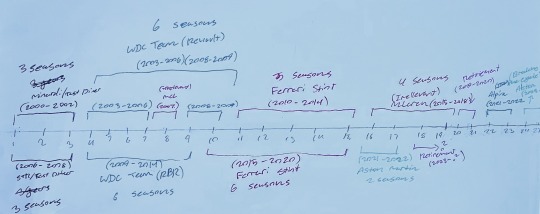
Its written so its as if their careers began at the same time. There's obviously some parts where they deviate from each other(I blame Fernando), but they're pretty similar, no??
Here's some notes I have:
They both started at technically the same team(if you ignore that Seb raced one race for Sauber): Minardi/STR. And they spent 3 seasons either racing for that team or testing(Fernando for Renault, Seb for BMW teams), before being promoted to the team where they won their respective WDCS.
They both spent six seasons with their WDC team. And both won their WDCs using Renault engines. Both were pretty much the golden boys of their teams, beloved by their team principal and team in general. Unfortunately both aren't consecutive because Fernando tried out McLaren lol.
They spent a similar amount of years at Ferrari(five and six respectively.) Neither could win a WDC with Ferrai(😔) And both joined Ferrari in a very similar way. When Fernando joined, he ousted Kimi and it was very uncertain where Kimi was going. I think the commentators in 2009 predicted McLaren? (But he ended up taking a sabbatical obv.) But pretty messy, right? The literal same exact thing happened with Fernando and Seb in 2014-2015. They finally announced at the end of the season, even though it was pretty obvious, that Seb would be replacing Fernando. And where did Fernando go? McLaren! The history book on the shelf is always repeating itself. I guess I find it funny that Fernando replaced his former rival under somewhat messy circumstances, only for his other rival to do the exact same thing to him years later.
Okay McHonda and Alpine blah blah blah. Anyways they're probably going to have both end up competing their careers after two years with Aston Martin. This honestly is my favorite parallel. Because it's very sweet to me that Seb replaced Fernando, in an aforementioned messy way, only for Fernando to take Seb's seat in a very peaceful, almost "passing the torch" type exchange 🥰
#blah blah blah theyre mirrors do you get it 🥺#i was gonna make one where i took our mclaren and alpine bcs they pretty much match up perfectly#but ig it feels a bit weird to just rip them out of his timeline yknow#i think they still match up regardless of that though#and im sure Fernando prob wouldnt mind too much removing both from his history 😭#i love how kimi is just there as well for both the ferrari replacements#like he was there to be the pawn in fernando's and then there to be the unaffected teammate during the second one 😭#see actually this is why we never got them as teammates#it wouldnt make sense for the mirror theory okay 🙄#cause they have the same career but just a little bit offset#so you can look at it and go wow! and then cry yourself to sleep bcs you then realize you'll never get them as teammates#haha i just bought some merch and they're both in aston racesuits so at least *I'll* have vettonso teammates on a personal level#but i think if i ever draw more of that timeswap au +#i wanna draw them together when they were each at the respective parts of their career#ex. minardi nando x str seb. renault nando x rbr seb. sf nando x sf seb. amr nando x amr seb. YKNOW!?#<- ive already thought of some silly dialog for two of them lmao#anyways this is my thesis thanks. hope you enjoy and agree <3#catie.rambling.txt#vettonso#normal posts that catie normally makes in a normal fashion
17 notes
·
View notes
Text


#renault#renault r5#r5#turbo#r5 turbo#3e concept#concept car#history#historic#new car#new cars#fast car#ev#electric cars#cars#car
39 notes
·
View notes
Text
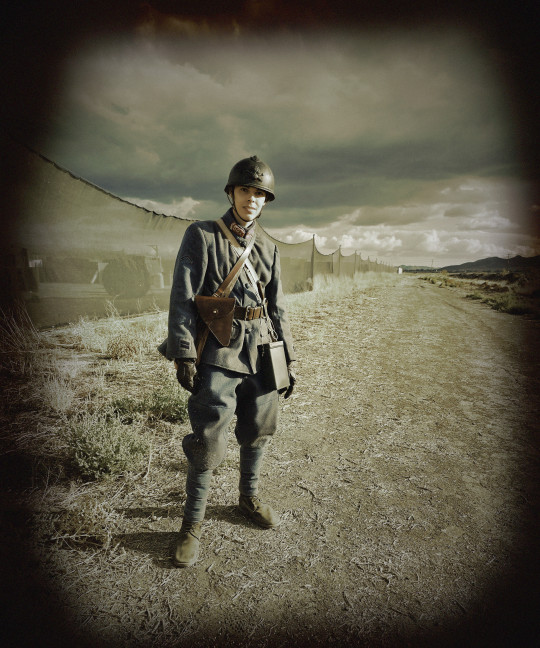

Great War French Tankiste Impression, circa 1918. Airsoft compatible here!
#uniforms#gear#tactical gear#history#tanks#renault ft#technology#military#ww1#ww1 history#world war 1#world war one#great war#military history#reenactment#reenactors#reenact#reenactor#reenacting
24 notes
·
View notes
Photo

25 février 1899 : création officielle de Renault ➽ http://bit.ly/Creation-Renault-Freres Par les frères Renault, Fernand et Marcel. En vérité, le génie, celui sans qui rien n’aurait été possible, c’est un troisième frère Renault, Louis : il a transformé un vieux tricycle en une voiture à moteur capable d’atteindre les 50 kilomètres à l’heure
#CeJourLà#25Février#Renault#automobiles#création#société#transports#technologie#histoire#france#history#passé#past#français#french#news#événement#newsfromthepast
10 notes
·
View notes
Text
(not so) subtle gays



#gay#lgbtq#book quotes#quotes#words#words words words#literature#classic lgbtq+ fiction#lgbtq+ fiction#compilation#my own stuff#oscar wilde#maurice#e m forster#the charioteer#mary renault#the secret history#donna tartt#gay disaster#asking without asking: are you gay too?#web weaving#cubitum eamus#gay disasters#how not to flirt
84 notes
·
View notes
Photo
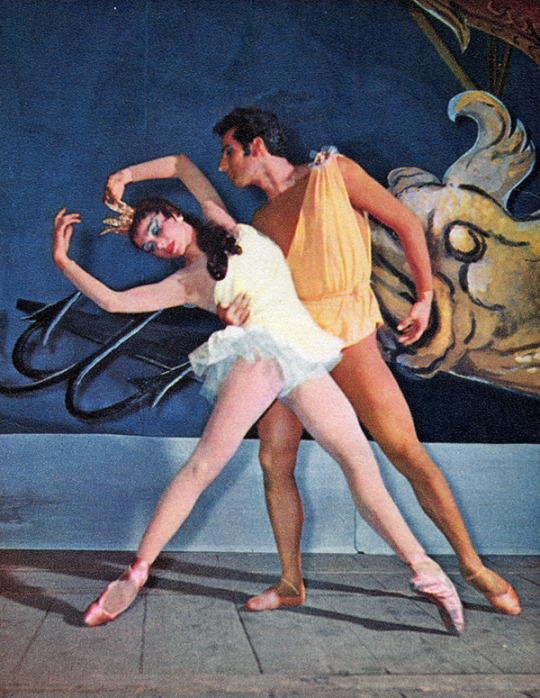
Michel Renault and Partner- Paris Opera Ballet - photo by Serge Lido
#michel renault#paris opera ballet#ballet de l'opéra de paris#ballerina#ballerino#danseur#dancer#bailarín#serge lido#ballet history
52 notes
·
View notes
Text
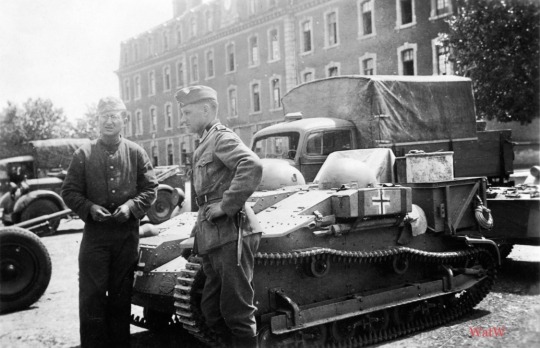
German soldiers are photographed next to a captured French multipurpose Renault UE armoured personnel carrier in the city of Nancy 1940. In the background is a 37mm PaK 36/37 anti-tank gun, a Stuttgart 260 command car and Opel Blitz 2.5 and Granit 1500S trucks
#world war two#1940s#worldwar2photos#history#ww2#wwii#ww2 history#wwii era#world war 2#ww2history#wehrmacht#france#1940#Nancy#renault#Opel#anti tank
36 notes
·
View notes
Text
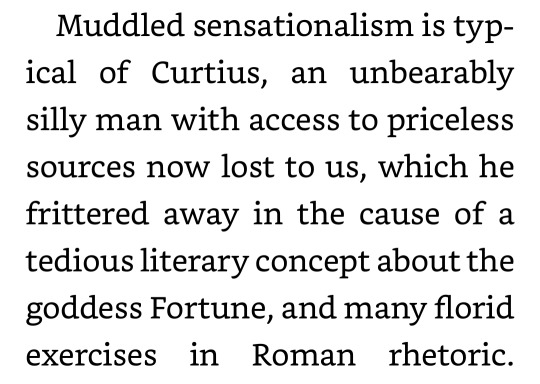
Mary Renault just absolutely annihilating 1st century Roman historian Curtius
#this is so funny to me#like she knew him#curtius#mary renault#the persian boy#Alexander the Great#history#booklr
22 notes
·
View notes
Text

Rhombus Family 21 SilhouetteHistory
Silhouettes of Renault 21 body styles. One of them rendered for a custom request as a part of a series.
Home | Posters | Special Tees | Facebook | Instagram
#silhouettehistory#renault#21#renault 21#renault 21 nevada#nevada#family car#sedan#wagon#hatchback#station wagon#break#french cars#car#silhouette#history
5 notes
·
View notes
Text











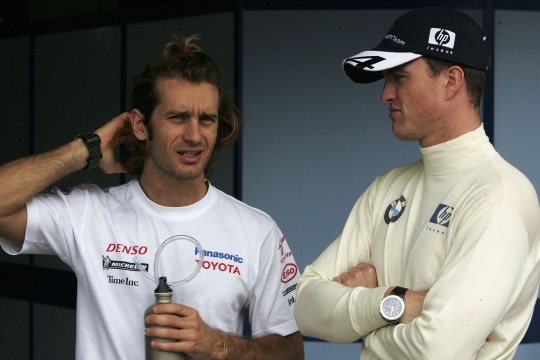
F1's Cutest Hairstyle - Jarno Trulli
#renault jarno truly was something else#jarno trulli#f1#formula 1#the cutest hairstyle in f1 history#2004#ogferal
20 notes
·
View notes
Text
The fury on Trina's face every time Cyrus tries to throw God in her face. Just like old times, Cyrus wants to play, and Trina is ready to fight.
#general hospital#trina robinson#cyrus renault#TA is killing it but no shock there#she's never missed a single beat of trina's character history in her performance and that's why she's awesome
6 notes
·
View notes